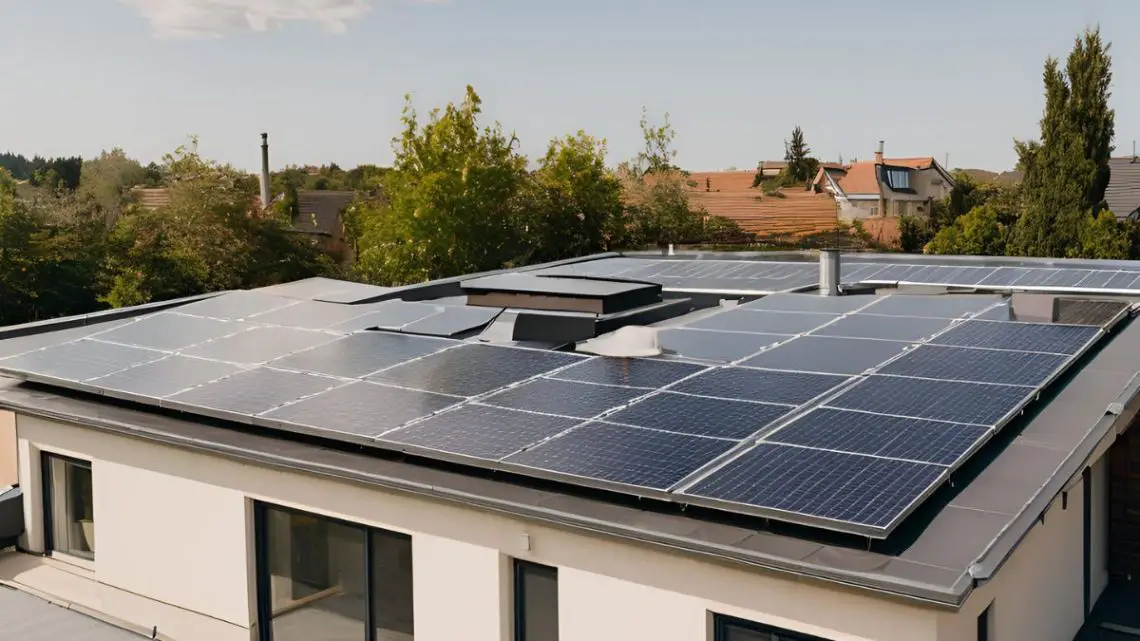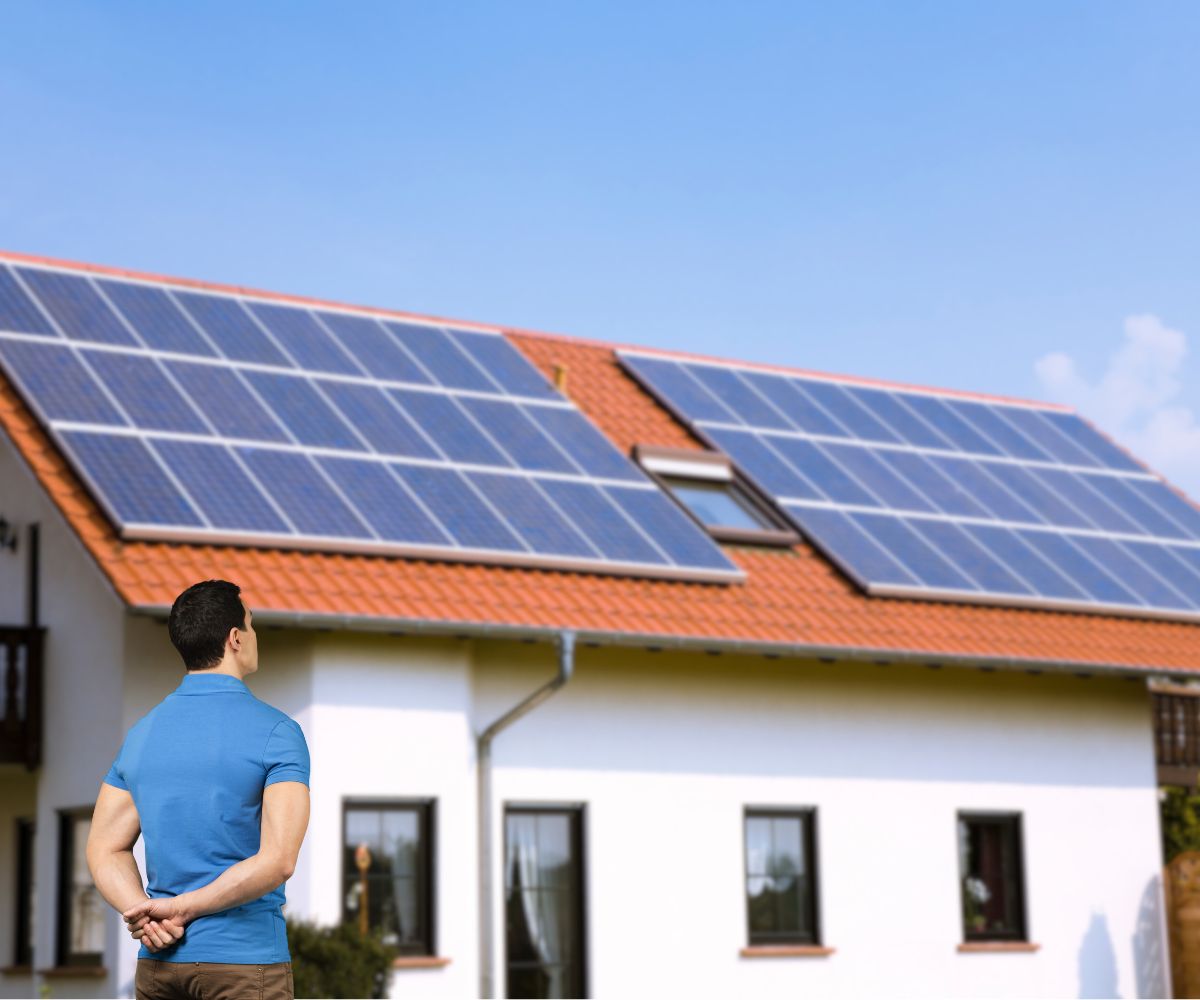
Turn Your Rooftop into a Cash Cow: A Property Owner’s Guide to Community Solar Hosting
November 3, 2024Being a property owner comes with many pros and cons. While having your property can be bliss, the financial responsibilities of maintenance, tax, and so on can be worrisome. Amidst the hype for environmentally friendly practices, homeowners can use this opportunity to make money through community solar projects. For instance, the community solar in Maryland not only benefits the whole community by providing green energy and reduced bills but also offers property owners a chance to earn by leasing out unused rooftops.
For property owners, rooftops are an excellent spot to host community solar projects. They can lease their rooftop area to energy providers by letting them install solar panels to generate green electricity for nearby businesses and homes. It’s excellent for contributing to a greener planet and ensuring a steady flow of passive income. If you want to tax your property’s rooftop for a good cause, we can help you. In this guide, we’ll walk you through all the essential steps to help you become a community solar host.
Steps to Convert Your Rooftop into a Steady Cash Machine
- Know the solar potential of your rooftop:
Before you plan to become the host of community solar, it’s important to have a thorough understanding of your rooftop. Even if you’re a property owner, knowing whether your rooftop is suitable for accommodating solar panels is important. Solar companies prefer rooftops that are flat, large, and get the maximum amount of sunlight. Such rooftops are eligible to easily hold solar panels that generate electricity throughout the day.
Besides, solar panels are quite heavy, so various factors like the age, size, and structural integrity of your rooftop equally matter. If you don’t have a good understanding of your rooftop, you can contact solar providers. They’ll run a free assessment to know if it’s a good fit for solar installation.
- Find yourself a solar partner:
Once you know whether your rooftop is capable of being a solar community host, your next step is to look for a suitable energy provider. Since you’ll be leasing your rooftop to a solar developer, you must look for the right one to partner with. Energy provider companies handle everything, right from the installation to maintaining it. Therefore, choosing the right solar partner who can take care of every commercial solar rooftop installer responsibility from scratch is important. An ideal way to look for a suitable solar partner is to check for their experience, reputation, and financial stability. While you might come across many solar developers during your search, however, only finalize the one that offers crystal clear, transparent contract terms.
- Review the lease agreement:
Although being a solar community host is both exciting and rewarding, before you sign the contract, make sure that you read the agreement thoroughly. The lease agreement holds all the important details that make the contract valid, such as the length, responsibilities, and the money you’ll get as the host. These factors are extremely crucial to pay heed to, as once you sign, you’ll confirm that you’ve gone through all the terms and conditions and are satisfied with them. The majority of solar panel leases extend to 20–25 years.
Therefore, it’s crucial to be mentally prepared to make such a long-term commitment. As a host, you’ll have certain responsibilities on your share. So make sure you understand them all and are ready to abide by them before signing. In case you’re not confident about the contract terms, it’s a good idea to consult a legal professional.
- Monitor the performance of your solar system:
Once the solar panels are installed and working, the solar company will keep an eye on their performance to make sure they’re producing energy properly. Many solar providers offer tools so you can check how well the system is working in real-time. Although you won’t need to handle the day-to-day management, it’s helpful to stay updated on how much energy is being generated. This way, you can understand how it affects your earnings from the lease. Staying informed ensures everything runs smoothly and your rooftop remains a valuable source of income.
- Keep a good relationship with your solar developer:
As a solar community host, you must maintain a good relationship with the energy providers. Having a sound professional relationship will ensure the success of the project. For this, communicating daily will make sure the project is running smoothly without any hiccups. Having solar panels installed on your rooftop is a matter of responsibility. Therefore, keeping a clear, transparent channel of communication with the solar company helps in maintaining the panels and resolving any issues quickly.
Final Thoughts
Using your rooftop to accommodate solar panels and become a community solar host is a fantastic approach to making money while caring for the environment. However, becoming a solar host isn’t a cakewalk. There are many factors involved, each for the benefit of both the host and the community. By following our above-mentioned steps, you can transform your unused rooftop space into a valuable asset that benefits both you and your community.



 With over 15 years of reporting hydrogen news, we are your premier source for the latest updates and insights in hydrogen and renewable energy.
With over 15 years of reporting hydrogen news, we are your premier source for the latest updates and insights in hydrogen and renewable energy.